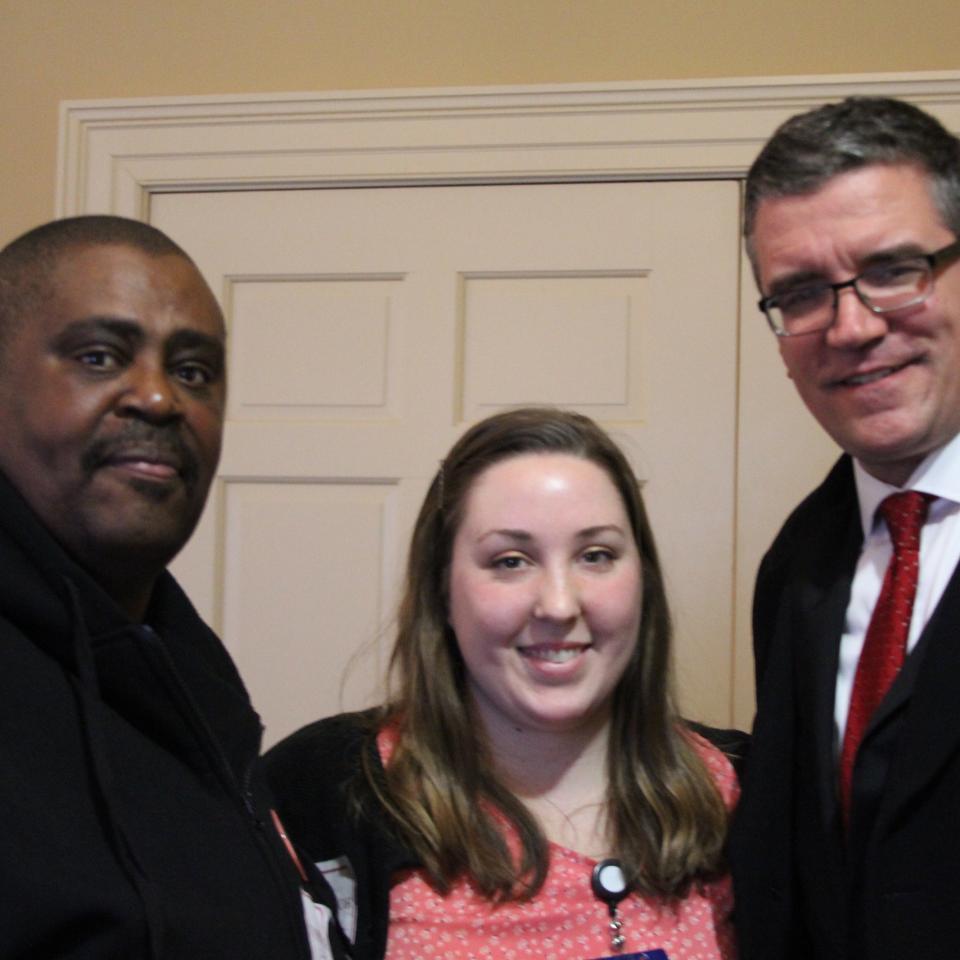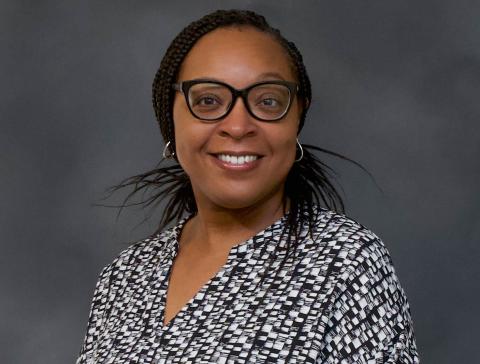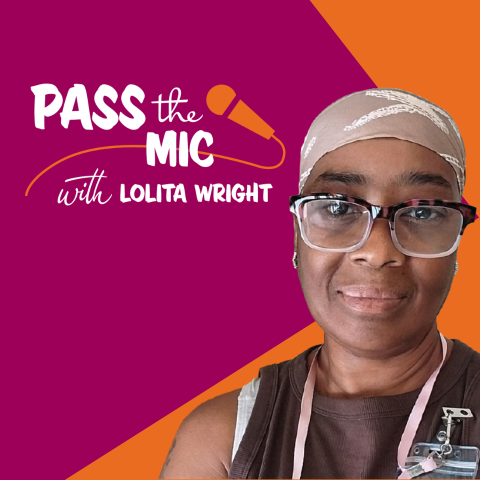
Stretching every penny
Public benefits like cash assistance, housing vouchers, food stamps and Medicaid represent a true and critical safety net for thousands of vulnerable individuals and families in Maryland. One such program, the $185 a month provided to people with disabilities and no other source of income through the state’s Temporary Disability Assistance Program (TDAP), not only helps sustain folks while waiting for other, more permanent benefits; but it can be a requirement for some of those benefits.
For Derrick, TDAP was the difference between getting housed and living indefinitely on the street; between managing his chronic health challenges and living in crisis; and between being a father versus a stranger in his children’s lives.
Health Care for the Homeless case manager Eva Hendrix—along with Health Care for the Homeless consumer advocate James Barnes and CEO Kevin Lindamood—recently testified before a Maryland Senate budget committee on the importance of continued funding for safety net programs, including TDAP. She told the story of her client, Derrick.
When Hendrix first met Derrick in February 2014, he had been denied Supplemental Security Income and Social Security Disability Insurance, and because of his multiple disabilities, he was appealing his case. “Derrick’s smile lights up his whole face,’ Hendrix told lawmakers. “He is soft-spoken and kind. These and many other positive qualities translate to a lot to offer in a work environment.” But Derrick also has tremors, dizziness and a range of symptoms stemming from an extensive history of trauma that made it difficult for him to remain alert and focused enough to complete the tasks required in most jobs, she said. So he was without a job, and without a home. And he was staying in a shelter, with TDAP as his only source of income.
Hendrix helped Derrick secure his Social Security card, and local and state identification. Next she administered a vulnerability assessment, and in November 2014, Derrick received a housing voucher through Baltimore City’s Coordinated Access Tool. “He would never have been matched with this opportunity without TDAP,” Hendrix said. “Income is a requirement for voucher eligibility.”
Derrick signed his lease and got the keys to his own apartment on March 3, 2015. With a place to call home, his health and overall stability quickly improved.
“When I visited him at his new home, I could see the pride shining in his eyes,” Hendrix said. “His new home enabled him to spend more time with his children, twins Amy and Andy, age 10, who now come visit on weekends.” But TDAP, Hendrix told lawmakers, is still essential for Derrick’s recovery. “The small amount of income provided through TDAP, only $185 per month, allowed him to pay for toiletries, clothing, his BGE payments and transportation to meetings at the clinic and with his lawyer. It also goes a long way to pay for the odds and ends of parenting. Derrick does all he can to make the most of these funds, stretching every penny.”
Meanwhile, Derrick’s ordeal is far from over. His Social Security appeal was denied again in December 2015, and he continues to rely on TDAP as he continues to navigate the appeals process. “He needs it to maintain his housing, his health and his relationships with his family,” Hendrix said. “He could not have gotten this far without TDAP, and he still needs help for the journey ahead.”
Client’s name was changed to protect privacy
More Recent News
After a year of serving as Practice Manager of West Baltimore, Alkema Jackson is moving into the new role of Director of Practice Operations, Community Sites! She joined Health Care for the Homeless in 2022 as the Client Access Project Coordinator, collaborating across departments to help more people connect to agency services, and in 2023, she received a Core Value Award for Hope. Read on to learn more about Alkema’s approach to this new position…
Meet Christana Greene, our new Director of Compliance! With more than five years in the compliance field—most recently as Senior Quality and Patient Safety Specialist at GBMC Healthcare—Chrissy brings frontline insight to the role. She began her career as a medical assistant, gaining firsthand experience in what it takes to keep care safe and operations running smoothly. In her new role, Chrissy is focused on building a compliance culture grounded in safety, integrity and accountability. Read on to learn more about Chrissy...
Baltimore gets dangerously cold, and too many of our neighbors are out there.Here are three simple things you can do to make a difference in someone’s life this winter.
Meet Lolita Wright, a mother and caregiver. Lolita is never leaving Baltimore. She shares her parents' love of music and determination.





